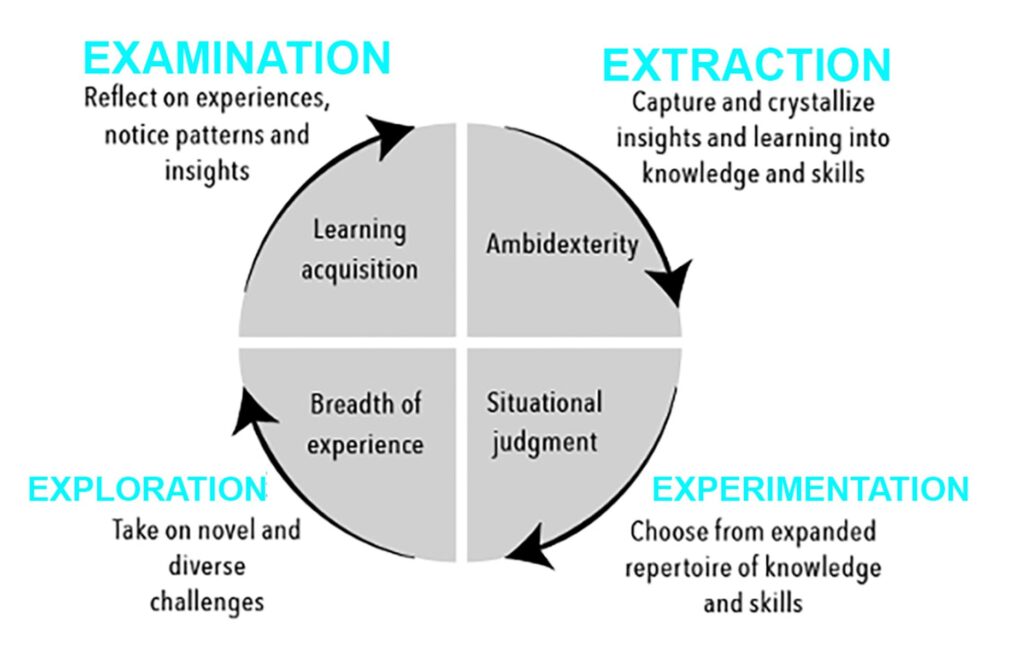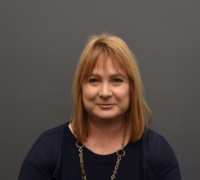
Three things I know: taking over the family business
How many times did I secretly wish for my father to leave the business and leave me the sole “Queen” on board? Ten years later, I cannot imagine working without him by...

by Tania Lennon, Misiek Piskorski Published February 27, 2025 in Brain Circuits • 3 min read
Leaders at more senior levels tend to take on more demanding challenges and gravitate toward more complex assignments. They also have more curiosity about the world around them.
Learning occurs mainly through thinking and reflecting on experience. High-fliers leverage strong cognitive ability to interpret and encode information in complex, uncertain environments.
Top performers are able to crystallize insights and learning into knowledge and skills, which means they acquire more job knowledge faster and resolve hard questions better. This reflects the essence of learning agility – the “meta-competency” that enables the acquisition of other competencies and knowledge.
The most successful leaders are able to choose the knowledge and skills to facilitate long-term performance, even when that means sacrificing short-term results. The capacity to select behaviors to match the specific demands of situations and people is reflected in the high predictiveness of emotional intelligence as a marker of potential – especially self-control.

Given the above desiderata, ask yourself the following questions to identify the right talent:
How quickly can the individual translate their experiences into knowledge and skills?
What experiences do they have that span functions, types of challenges (start-up, turn-around, etc.), and countries?
Have they acquired key areas of expertise, and can they harness current capabilities to drive profitability while establishing new sources of value?
Have they cultivated the executive functions (cognitive, strategic, and behavioral flexibility) to respond effectively to dynamic, novel, and challenging situations?
It encompasses the critical drivers of potential for senior leadership roles in a dynamic and complex environment.
It does not rely on information of past performance, allowing for the possibility that what drove success in the past may not address new challenges.
It incorporates innovative assessment mechanisms that rely less on self-assessment and offer a more objective and robust view of potential.
This approach to identifying talent enables organizations to harness the potential of their people and equip them to thrive in a dynamic and complex environment, providing more predictive insights into potential and the development of effective leadership pathways.

Executive Director of the Strategic Talent Development initiative
Tania Lennon leads the Strategic Talent team for IMD. She is an expert on future-ready talent development, including innovative assessment methods to maximize the impact of talent development on individual and organizational performance. Lennon is a “pracademic”, blending a strong research orientation with evidence-based practice in talent development and assessment.

Professor of Digital Strategy, Analytics and Innovation and Dean of Executive Education
Mikołaj Jan Piskorski, who often goes by the name Misiek, is a Professor of Digital Strategy, Analytics and Innovation and the Dean of Executive Education, responsible for Custom and Open programs at IMD. Professor Piskorski is an expert on digital strategy, platform strategy, and the process of digital business transformation. He is Co-Director of the AI Strategy and Implementation program.

July 4, 2025 in Brain Circuits
How many times did I secretly wish for my father to leave the business and leave me the sole “Queen” on board? Ten years later, I cannot imagine working without him by...

July 3, 2025 • by Eric Quintane in Brain Circuits
Entrepreneurial talent who work with other teams often run into trouble with their managers. Here are ways to get the most out of your ‘boundary spanners’...
 Audio available
Audio available
July 3, 2025 • by Susanne May in Brain Circuits
Culture shapes how people work together, make decisions, handle conflict, and support each other. Ask yourself the following questions to check where your teams might be going wrong, and read on for tips on maximizing...

July 2, 2025 • by Susan Goldsworthy in Brain Circuits
When we feel stressed, we’re more likely to operate from a place of fear and fall back on a mindset that is fixed, judgmental, and focused on polarities – behaviour that soon...
Explore first person business intelligence from top minds curated for a global executive audience